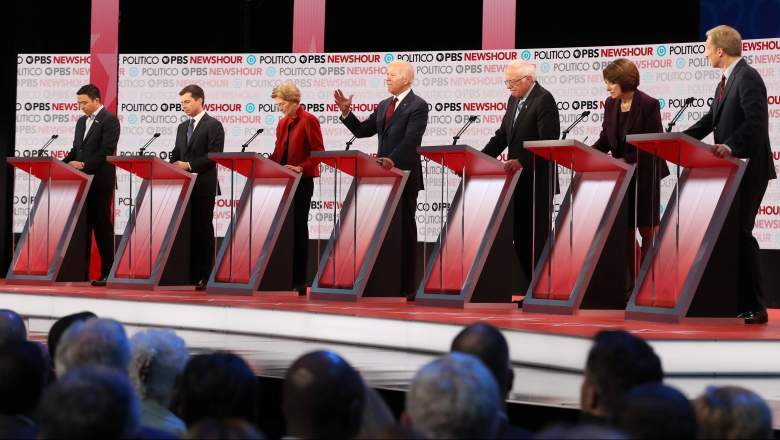
Today is the Nevada caucus, following a dramatic Iowa caucus that is still being disputed and a fairly smooth New Hampshire primary. Today’s caucus will help determine who is the Democratic nominee for the 2020 Presidential election. But after today’s election is over, when is the next one? The next election is the South Carolina primary on February 29.
South Carolina Primary Details
The South Carolina primary on February 29, 2020. The polls are open from 7 a.m. to 7 p.m. Eastern, and delegate pledging is proportional. It’s an open primary, so as long as you haven’t already voted in the South Carolina Republican Presidential Primary, you can vote in this one.
Since this is a primary, polls will be open all day and results will begin coming in after the polls close at 7 p.m. Eastern on February 29, according to The Green Papers. In this way, South Carolina will be more like New Hampshire than Iowa or Nevada, and we’ll likely hear results a lot sooner in the day.
South Carolina has 63 delegates that attend the Democratic National Convention and are pledged based on the voting results. A candidate must meet at 15 percent threshold in order to get delegates.
The delegates include 35 district delegates awarded proportionally based on primary results in the seven congressional districts and 19 delegates based on statewide primary votes (12 at-large and seven pledged PLEOs). The state also has nine unpledged PLEOs, who are essentially superdelegates. These include seven DNC members and two members of Congress (two Representatives).
After this, the precinct reorganization meeting is March 14, followed by County Democratic Conventions from March 14 through March 31, and then the state convention on May 30.
The Rest of the Primary & Caucus Schedule
On Super Tuesday on March 3, 15 states will host their primaries and caucuses, including California and Texas. This year, California has moved up its primary from when it usually is held in June, making Super Tuesday an even bigger deal. Here are the states participating in Super Tuesday:
- Alabama
- American Samoa (Democratic caucus only)
- Arkansas
- California
- Colorado
- Democrats Abroad
- Maine
- Massachusetts
- Minnesota
- North Carolina
- Oklahoma
- Tennessee
- Texas
- Utah
- Vermont
- Virginia
On March 8, Puerto Rico will host its Republican primary.
On March 10, primaries and caucuses will be in Idaho, Michigan, Mississippi, Missouri, North Dakota (Democrat only), and Washington.
On March 12, the Virgin Islands will have its Republican caucus.
On March 14, Guam (Republican only), Northern Mariana, and Wyoming (Republican convention) will be held.
On March 17, primaries will be in Florida, Illinois, Ohio, and Northern Mariana (caucus). Arizona will also have a Democratic primary, but the Republican primary was canceled.
On March 24, American Samoa (Republican caucus only) and Georgia’s will take place.
On March 27, North Dakota will host its Republican convention.
On March 29, Puerto Rico will host its primary (Democratic only.)
270 To Win notes that by the end of March, more than 50 percent of the Democratic party’s delegates will already be decided.
On April 4, primaries will be held in Louisiana, Wyoming (Democratic caucus only), Alaska and Hawaii. (Alaska and Hawaii opted out of their Republican primaries.)
On April 7, Wisconsin will host a primary.
On April 28, primaries will be held in Connecticut, Delaware, Maryland, Pennsylvania, Rhode Island and New York.
On May 2, primaries will be in Guam and Kansas.
On May 5, Indiana will have its primary.
On May 12, Nebraska and West Virginia will have their primaries.
On May 19, Kentucky and Oregon will have their primaries.
On June 2, Montana, New Jersey, New Mexico, South Dakota and Washington D.C. will have their primaries.
On June 6, the U.S. Virgin Islands will have its Democratic caucus.
The Democratic National Convention will take place July 13-16. According to Ballotpedia, there will be 4,750 delegates total, including 3,979 pledged and 771 automatic (more commonly known as superdelegates.) In order to not have a contested convention, a candidate needs 1,991 pledged delegates on the first ballot. (Superdelegates aren’t allowed to vote on the first ballot.) If no candidate gets this majority of pledged delegates, then a second ballot (or more) will take place and both pledged and automatic delegates can vote this time. From then on, a candidate needs the majority of all delegates to win, which is more than 2,375 votes.
READ NEXT: Bloomberg’s Betting Odds Drop Sharply During Democratic Debate